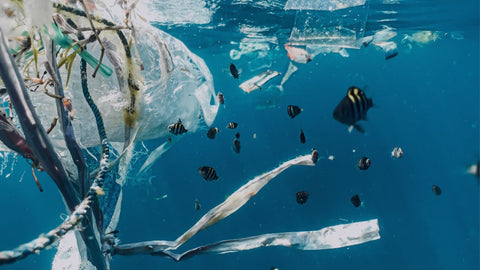Accumulating plastic pollution in our oceans is beyond alarming, with yearly plastic waste flowing into our oceans set to triple by 2040 to 29 million metric tonnes. That’s 600 million tonnes of plastic killing our marine life and working its way up the food chain to our dinner tables. Now, for the first time, new tests have shown positive for the presence of microplastics in the human bloodstream. 80% of testers showed traces of PET plastics, the most common form present in drink bottles and disposable plastic products. These harmful little pollutants have been found just about everywhere on the planet, including the air we breathe, working through the food chain into our bodies. Now, it seems, they’re here to stay, living in most of us.

For those who don't know, microplastics are tiny plastic particles about 3mm thick. While they’re in the process of breaking down, microplastics continue to hold their integrity for hundreds of years, slowly leaching into the surrounding environment. As a by-product of plastic waste, they’re often found in the oceans, where fish and other organisms try to digest them. These plastics can block the gastrointestinal tracts, which leads to starvation for many sea creatures and introduces harmful toxins.
Their exact impact is not entirely understood, especially in humans, but is commonly linked to cancer and other ongoing health conditions. What is known is that microplastics damage human cells and have caused millions of early deaths.

At our current rate of plastic pollution, the amount of plastic will soon outweigh the fish in the sea! Solutions are currently being investigated to clean up the existing microplastics, but the best possible way to prevent the spread is to ban single-use plastics.
Eartha supports Clean Hub, and we are working together to remove plastic from our oceans. Clean Hub is building a global network of local Collection Hubs in high impact locations (such as Indonesia and India) to facilitate the collection and safe processing of non-recyclable plastic.

Sources: International Union for Conservation of nature, The Guardian, Clean Hub

About the author - meet Earthan James McCulloch
James is a literary student and environmental enthusiast who likes thinking about the better futures we could have (and those we best avoid). When not playing with other people’s dogs or taking long, mindful walks, he’s usually found reading and writing, often at the local library. You can check him out on his blog for something a little different, where he talks about all things literary or otherwise.

